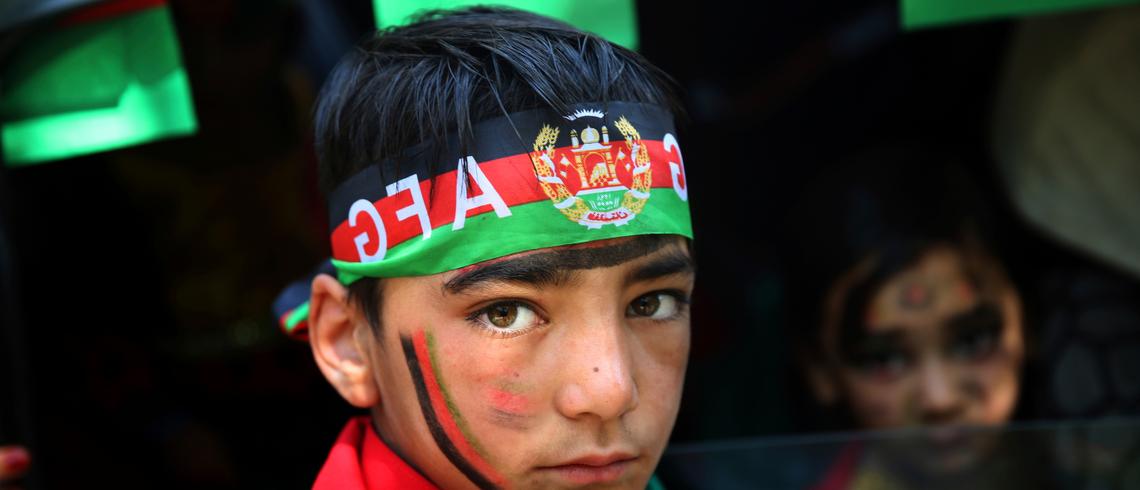Every year, Afghans celebrate their independence on August 18, following the Islamic calendar. This year, as the country marks 101 years of freedom, its sovereignty continues to be marred with a history of foreign invasions, prompting decades of violence and bloodshed.
Afghanistan claimed independence from British colonial rule in 1919, under the aegis of the reformist King Amanullah Khan who established current-day Afghanistan.
For the last 40 years, the country has braved immense violence, starting with the Soviet invasion in 1979 that was resisted for a decade by the Afghan Mujahideen — a term that evoked bravado and righteousness in the West until it was smeared by the events following the 9/11 attacks.
The defeat and withdrawal of Soviet troops was followed by a power vacuum resulting in a civil war between the various Mujahideen factions in the early 1990s. This period was followed by the brutal regime of the Taliban who took control in 1996, only to be toppled five years later by a US invasion of the country in 2001.
Since then, the insurgent group has continued to wage war against both foreign and Afghan forces.
This tumultuous history has ensured that not one Afghan born in the last forty years has experienced peace or freedom in the independent nation.
“We love our independence”
A very different Afghanistan lives on in the memories of those who lived before the start of the troubled times. “Life was simple and good before the Russian invasion, even though people were not that rich, it was an environment of safety and prosperity,” recalls Sahira Sharif, a 59-year-old parliamentarian from Khost province of Afghanistan.
She recalls her life as a schoolgirl in Kabul, a city that was at the heart of cultural and economic growth in the region. “Crimes and harassment were very low; I used to walk from Khair Khana to Park-e-Zarengar (around 10 KM) to visit a library that was located there,” she traces a scenic route from her youth.
Sharif was only 17 years of age when the Soviets invaded, and in a matter of years, she witnessed the stability and security of her homeland disintegrate. She graduated from high school against a backdrop of battles between the mujahideen and Soviet troops across the country. “I was meant to start studying in the medical university in Nangarhar province, but as the fighting intensified in Jalalabad city, my family forbade me to continue,” she said.
For those who resisted the Soviet invasion, the violence was a means to realising their independence from an oppressive regime. “The Soviets wanted to rule us like they did other central Asian countries. They were against our faith, our culture, and our tradition. We fought them because we love our independence and Islam is important to us,” says 53-year-old Mohammad Wazir Razi Kabuli, who fought in several battles against the Soviets.
“The first time I went to the battlefield I noticed a lack of medical personnel. That year I went to Pakistan and took a six months course in first aid, and then returned to serve as a paramedic to the mujahideen,” he recalls from his time as a guerrilla in the country.
The conflict consumed nearly every Afghan family irrespective of their political allegiances. Like millions of Afghans, Sharif’s family sought refuge in Pakistan or were displaced in other Afghan provinces.
Although Sahira Sharif, ever a determined woman, stayed in Kabul with her brother to complete her higher education though the city was burning with deadly violence.
She also witnessed the aftermath of the battles. “Afghans may have defeated the Soviets but Afghanistan was in a worse situation after the victory. Everything was destroyed, so many people were killed,” she says.
The gunmen who kill our people
The victory was punctuated by more violence and the reign of brutal regimes. As the conflict evolved, so did the definition of an independent Afghanistan.
While Kabul sought independence from foreign oppression, Sharif’s idea of independence takes inspiration from a country that was once at peace. “An independent Afghanistan is one where there is rule of law, and people have rights, development is equal and inclusive. And the government is able to make decisions without pressure,” she says.
Perhaps, it is Afghanistan’s youngest generation that perfectly illustrates the country’s complicated relationship with the ideas of independence and freedom.
The Afghan youth — who make up 65 percent of the Afghan population — seek their own meaning in independence amidst a conflict that was thrust upon them. “I was born in the war, and have not known one second of peace in my life. Every day we experience new tragedies — suicide attacks, explosions, bombs, fighting and so on,” says the 23-year-old Basira Paigham, a women’s rights activist from the northern city of Aybak in the Samangan province.
She is concerned over the deal signed between the Taliban and the US earlier this year, one that has accelerated efforts to hold intra-Afghan talks. “The peace deal with the Taliban is not reconciliation, rather an agreement between a group of gunmen and the US administration. It does not take into account the human rights, transitional justice, rights of victims of war. It empowers the armed gunmen who continue killing our people,” she explains.
Now, as the Afghan government prepares to negotiate with the Taliban, Paigham finds her independence at stake.
“Today as an Afghan girl, I have the independence to seek education, to work alongside men, travel and even express my opinions. The Taliban have made clear that they disapprove of women who work and are involved in social or political spheres. I will lose my freedoms if the Taliban comes [to power],” she said.
“I hope the government of Afghanistan stops compromising with the Taliban because it only empowers them to trample on our freedoms.”
Paigham’s views are shared by those from the generation before her.
“Afghanistan can be made free of invasions, but real peace and independence will come when our leaders can prioritise national interest during the peace talks, over personal, ethnic, religious, political and geographical interest,” said Kabuli.
Sharif also adds in agreement, “If the negotiations are based on commitment, honesty and true will, the outcome will be good for Afghans, but as we know that Taliban and Afghan government are not impartial.”
However, the irony of yearning for freedoms—from conflict, oppression, invasions and extremism, among other things—in an independent country, is not lost on Afghans who celebrate their independence.
“Even if peace is made with the Taliban, it will take a long time to make Afghanistan an independent and developed country,” Sharif said.
“This war is not just an Afghan war, it’s the war of regional and international rivalries. So it will end only if all parties show a willingness to end it.”













